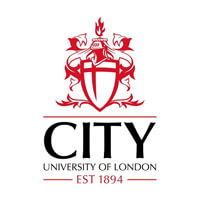fees waived
Energy and Sustainability Engineering, BEng (Hons), with industry placement
City, University of London, United Kingdom
Subject ranking
UK / Guardian 2025 38th
UK / QS 2025 39th
UK / CUG 2025 40th
Costs
food & rentS$25.1K / year
Entry requirements
Scholarships
Limited quantity
Information
Code
Intakes
Programmes
Information
Duration
2029
This degree provides a strong scientific and technical foundation for understanding, designing, and managing efficient, cleaner energy systems. As the world shifts to a greener economy, students learn to investigate and propose innovative solutions using renewable resources and regulatory frameworks. The program emphasizes a multidisciplinary approach to sustainable development, equipping learners with skills in energy technologies, policy, and supply-demand dynamics through individual and group projects, industry collaborations, and access to world-leading research facilities. An optional placement year enhances employability.Over three years, the curriculum builds expertise via shared foundational modules in engineering fundamentals, followed by specialized topics. Year one covers mathematics, mechanics, thermodynamics, and electronics. Year two advances knowledge in power generation, data analysis, materials, and mechatronics. Year three focuses on an individual project, renewable energy, energy storage, policy, and through-life engineering, preparing graduates for roles in energy firms and potentially Chartered Engineer status.
You will develop a broad background in engineering subjects and concepts, before beginning to specialise in the field of energy and sustainability. The Engineer in Society is an innovative theme across each year. We introduce you to the economic, social and technical context where engineers work, and develop your social responsibility, knowledge, and topical engineering skills. Year 1 Our largely shared first year offers you a firm foundation in mathematics, engineering, physics, electronics and computing, and manufacturing and materials. -The Engineering in Society - Social responsibility (15 credits) -Engineering Design 1 (15 credits) -Introduction to Mechanics of materials and manufacturing (15 credits) -Engineering Science (15 credits) -Introductory Mathematics and Programming (15 credits) -Mathematics 1 (15 credits) -Introduction to Thermodynamics and Fluid Mechanics (15 credits) -Electronics - including circuits, digital and analog electronics (15 credits) Year 2 Begin to advance your knowledge of power generation while studying data analysis, materials and mechatronics, thermal power systems, electronics and geology and materials. -The Engineer in Society: Sustainability and Circular Economy (15 credits) -Engineering Design 2 (15 credits) -Mathematics 2 (15 credits) -Geology and Materials (15 credits) -Mechatronics and Systems (15 credits) -Electronics 2 - including Electromagnetics (15 credits) -Thermal Power systems (15 credits) -Data Analysis for Engineers (15 credits) Year 3 Deepen your expertise through an individual design project focused on energy systems. Study topics including through-life engineering, renewable energy systems, energy storage and hydrogen economy, energy in the built environment, and energy policy and regulations. -Individual project (30 credits) -The Engineer in Society: Energy for all (15 credits) -Renewable Energy systems (15 credits) -Energy in the built environment (15 credits) -Through Life Engineering (15 credits) -Energy policy, regulations (15 credits) -Energy storage and hydrogen economy (15 credits)

